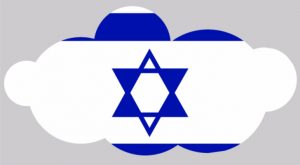3 Israeli ETFs to Play the ‘Start-Up Nation’
This article was originally published on this site
With the move last week by Intel Corporation (NASDAQ:INTC) to purchase Israel’s Mobileye NV (NYSE:MBLY), investors began taking a fresh look at “Start-Up Nation” fund opportunities.

The eye-popping $15.3 billion deal buys the Silicon Valley chipmaker a seat at the high-rollers’ table of the self-driving car market. For sensor maker Mobileye, with adjusted net income of $173.3 million in 2016, Intel is paying a 34.5% premium, that for a company that was only recently listed on the New York Stock Exchange in 2014.
Tel Aviv-based website builder Wix.Com Ltd (NASDAQ:WIX) went public in November 2013, in the then-largest ever IPO for an Israeli company, raising $127 million. The share price has almost tripled since the debut. Caesarstone Ltd (NASDAQ: CSTE), which IPO’d a year earlier, has returned almost 450% to investors. The 2009 book “Start-Up Nation” gave Israel its nickname.
Israel-domiciled companies represent the third-largest foreign contingent on Nasdaq, behind Canada and China, And three exchange-traded funds present opportunities to ride the country’s technology sector.
Small ETF Finds Large Return
The BlueStar TA-BIGITech Israel Technology ETF (NASDAQ:ITEQ) is on a tear in March, up 4.6% so far, and contributing to an almost 14% advance this year. It is an index of approximately 60 Israeli technology companies listed on the Tel Aviv, Nasdaq, NYSE and Singapore exchanges.
Mobileye was the largest of the fund’s holdings, at 14.5% weighting, as of March 22. Wix was the ninth-largest, at 3.3%. In between are names such as Check Point Software Technologies Ltd.(NASDAQ:CHKP), Verint Systems Inc. (NASDAQ:VRNT) and Nice Ltd (ADR) (NASDAQ:NICE). It has an expense ratio of 0.75% and is rebalanced twice a year. Fund assets were just shy of $10 million at the end of last week.
The index managers define tech broadly and it shows in the stocks included. These companies are at the forefront of most technologically disruptive industries, including cyber security, Big Data hardware and analytics, autonomous driver assistance and safety, clean energy, biotechnology and medical devices.
Bloomberg Intelligence analyst Eric Balchunas last week included the fund among his picks of those that are smaller-sized, but with larger returns.
More Drama With Pharma
For those seeking more pharmaceutical industry exposure in their Israel investment, VanEck Vectors Israel ETF (NYSEARCA:ISRA) tracks a cap-weighted index of Israeli and Israeli-linked companies and competes with iShares MSCI Israel Capped Investable Market Index Fund (NYSEARCA:EIS). ISRA assets totaled $40 million as of March 17, while EIS held $114 million.
ISRA has returned 7.7% over the past year while EIS has delivered almost 12%. Expense ratios are 0.59% and 0.62%, respectively. BlueStar’s Steven Schoenfeld said recently that pharma holdings have led to the fund underperforming other Israel ETFs, describing it as “pharma drama.”
The fund’s underlying index puts drug companies Teva Pharmaceutical Industries Ltd (ADR)(NYSE:TEVA) and Perrigo Company plc Ordinary Shares (NYSE:PRGO) among its top 10 holdings, and includes Taro Pharmaceutical Industries Ltd. (NYSE:TARO) and RedHill Biopharma Ltd – ADR (NASDAQ:RDHL), among its nearly 140 constituents.
So as a growing chorus of investment managers are beginning to believe that Israel tech stocks are not only under-owned, but also underappreciated, a trio of ETFs can provide entry into an economy that is more about clicks than bricks.
As of this writing, Robert Lakin did not hold a position in any of the aforementioned securities.


